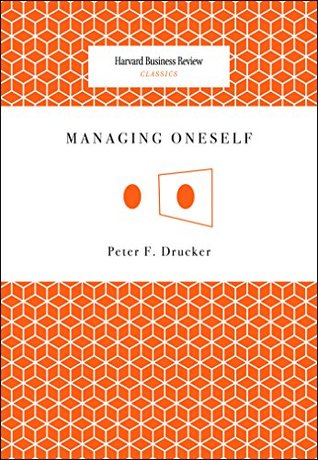More on this book
Community
Kindle Notes & Highlights
Read between
October 29 - November 1, 2017
The only way to discover your strengths is through feedback analysis. Whenever you make a key decision or take a key action, write down what you expect will happen. Nine or 12 months later, compare the actual results with your expectations.
First and foremost, concentrate on your strengths. Put yourself where your strengths can produce results.
Third, discover where your intellectual arrogance is causing disabling ignorance and overcome it.
taking pride in such ignorance is self-defeating.
Go to work on acquiring the skills and knowledge you need to fully realize your strengths.
But bulldozers move mountains; ideas show where the bulldozers should go to work.
One should waste as little effort as possible on improving areas of low competence.
And yet most people—especially most teachers and most organizations—concentrate on making incompetent performers into mediocre ones.
“If I don’t write it down immediately, I forget it right away. If I put it into a sketchbook, I never forget it and I never have to look it up again.”
Am I a reader or a listener? and How do I learn? are the first questions to ask. But they are by no means the only ones. To manage yourself effectively, you also have to ask, Do I work well with people, or am I a loner? And if you do work well with people, you then must ask, In what relationship?
Another crucial question is, Do I produce results as a decision maker or as an adviser?
But in the number one spot, the same person fails. He or she knows what the decision should be but cannot accept the responsibility of actually making it.
Do not try to change yourself—you are unlikely to succeed. But work hard to improve the way you perform.
What are my strengths? How do I perform? and, What are my values? And then they can and should decide where they belong.
The person who has learned that he or she does not perform well in a big organization should have learned to say no to a position in one.
Successful careers are not planned. They develop when people are prepared for opportunities because they know their strengths, their method of work, and their values. Knowing where one belongs can transform an ordinary person—hardworking and competent but otherwise mediocre—into an outstanding performer.
The first is to accept the fact that other people are as much individuals as you yourself are. They perversely insist on behaving like human beings. This means that they too have their strengths; they too have their ways of getting things done; they too have their values. To be effective, therefore, you have to know the strengths, the performance modes, and the values of your coworkers.
This, in fact, is the secret of “managing” the boss.
The second part of relationship responsibility is taking responsibility for communication.
The second way to prepare for the second half of your life is to develop a parallel career.
The majority may “retire on the job” and count the years until their actual retirement. But it is this minority, the men and women who see a long working-life expectancy as an opportunity both for themselves and for society, who will become leaders and models.


